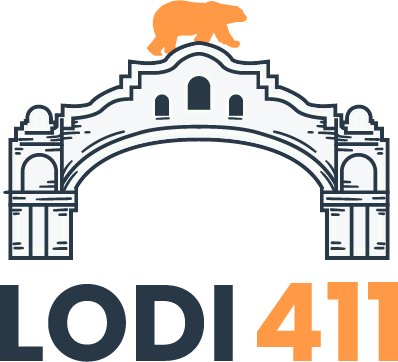Medi-Cal, Medicaid changes — A Medical Emergency for Lodi?
As Steve Mann writes in his recent “About Town” article, “Medical Emergency - Cuts could devastate Lodi Memorial Hospital,” changes to Medi-Cal and Medicaid funding could have a significant impact on Lodi Memorial and other San Joaquin County hospitals. Lodi News Sentinel repost.
State Budget Cuts to Medi-Cal
Newsom’s May Revision proposes $5 billion in Medi-Cal cuts, targeting undocumented immigrants and vulnerable groups:
Enrollment freeze for undocumented adults starting in 2026.
$100 monthly premiums for undocumented enrollees.
Elimination of dental benefits, long-term care, and In-Home Supportive Services (IHSS) for undocumented adults.
Reductions to provider payments and healthcare infrastructure, including skilled nursing facilities and rural clinics.
Impact on San Joaquin Valley:
Over 60% of patients at clinics like United Health Centers rely on Medi-Cal. Cuts would force clinics to reduce services or close, shifting patients to costly emergency rooms.
Providers like Golden Valley Health Centers warn that cuts would destabilize care for 180,000+ patients, many in agricultural communities.
Federal "Big Beautiful Bill" Cuts / Changes
The GOP-led bill includes $1 trillion in Medicaid cuts and stricter work requirements, risking coverage for 3.4 million Californians:
Federal Medicaid funding reductions: California could lose $22 billion from job-loss penalties and $4 billion annually for covering undocumented residents.
Provider tax restrictions: Limits on state funding mechanisms could cost California hospitals billions.
Clinic defunding: Nonprofits like Planned Parenthood and Federally Qualified Health Centers (FQHCs) face Medicaid payment cuts.
Impact on Lodi/San Joaquin Hospitals:
Hospital closures: Reduced reimbursements and uncompensated care costs could shutter facilities. Newsom warns of "safety net collapse".
Medi-Cal reliance: San Joaquin County’s uninsured rate, already reduced to 6.7%, could spike, overwhelming emergency departments.
Provider shortages: Proposed cuts to graduate medical education and Proposition 56 payments would exacerbate existing workforce gaps.
Potential Immediate and Long-Term Impacts
Revenue Loss and Increased Uncompensated Care
Medi-Cal is a major revenue source for hospitals in San Joaquin County, including those in Lodi. Over half the region’s population relies on Medi-Cal, making local hospitals highly dependent on these reimbursements.
Cuts would reduce payments for patient care, directly slashing hospital income. This would force hospitals to absorb more uncompensated care as patients lose coverage or are unable to pay for services out-of-pocket.
Uncompensated care increases financial strain: Hospitals would have to provide more emergency and acute care without reimbursement, eroding already thin operating margins.
Risk of Service Cuts and Closures
Hospitals may have to reduce services or close: With less Medi-Cal funding, hospitals would likely cut staff, limit specialty services, or even shut down departments such as maternity or emergency care.
Precedent of closures: The San Joaquin Valley has already seen hospital closures due to financial instability. Further cuts could push other hospitals, including those in Lodi, to the brink.
Job losses: The UC Berkeley Labor Center estimates that Medi-Cal cuts could eliminate up to 210,000 jobs statewide, with the Central Valley among the hardest hit. Hospitals, as major local employers, would be forced to lay off staff or freeze hiring, compounding the region’s economic challenges.
Broader Economic and Community Impact
Ripple effects on local economy: Reduced hospital operations would mean fewer jobs and less local spending, further weakening community economic health.
Longer wait times and reduced access: Staffing and service cuts would lead to longer wait times, overcrowded emergency rooms, and reduced access to care for all residents—not just Medi-Cal patients.
Higher costs for everyone: As hospitals shift costs to private insurers to offset losses, premiums for employer-sponsored and individual health plans could rise, impacting the entire community.
Conclusion
San Joaquin County and Lodi hospitals risk reduced services, closures, and overwhelmed emergency rooms as state and federal policies collide. Vulnerable populations—low-income families, undocumented residents, and seniors—would bear the brunt, reversing decades of progress in healthcare access. The entire community—patients, healthcare workers, and local businesses—would feel the consequences as access to care declines and economic pressures mount Local providers urge lawmakers to protect Medicaid funding and prioritize safety-net investments..
More information
Governor Newsom: GOP bill would rip health care from up to 3.4 ... https://www.gov.ca.gov/2025/05/20/governor-newsom-gop-bill-would-rip-health-care-from-up-to-3-4-million-californians-cost-the-state-billions-close-hospitals-and-clinics/
A Look Ahead at Health Care Policy Under President Trump https://calhospital.org/on-the-horizon-a-look-ahead-at-health-care-policy-under-president-trump/
Understanding the Governor's 2025-26 State Budget Proposal https://calbudgetcenter.org/resources/understanding-the-governors-2025-26-state-budget-proposal/
Many Valley residents could face devastating health coverage cuts https://themercedfocus.org/more-than-half-of-san-joaquin-valley-residents-could-face-devastating-cuts-to-health-coverage/
Stop Medicaid Cuts - SEIU UHW https://www.seiu-uhw.org/stop-medicaid-cuts/
Proposed Medicaid cuts would threaten access to health care for all https://thealliance.health/proposed-medicaid-cuts-would-threaten-access-to-health-care-for-all/
